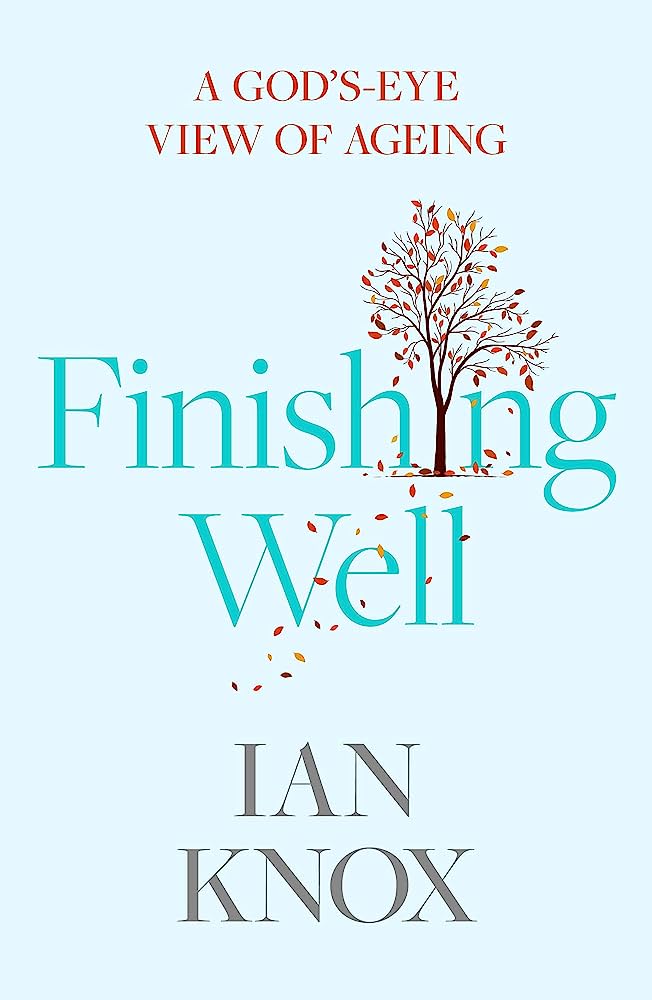Ian Knox is an experienced, wise and creative priest and evangelist. His love of people, life, scripture and learning are all present in the fourteen chap- ters of this book. His scope of reading and his attention to a range of voices are also woven into each chapter. It is part autobiography, part testimony to the necessity of faith in Jesus Christ and partly an extended (and fluent) biblical reflection. The book is confident, clear and challenging. It encourages readers to reflect on age and the possibilities that older age may offer.
The book argues that old age is precious and pregnant with opportunities for commitment to faith and the enlargement of meaning and truth. Age is articulated as the best time to consider choice, embrace change and stand up for what is believed in and lived for. Declaring the book to be ‘unashamedly Christian’ (5), Knox regards faith as key to finishing well. Older people are to be valued and socially integrated. We are richer and wiser when we listen to their lives (18). It is our Christian responsibility to care for older Christians and help them to see what might be core issues for them and, through them, for ourselves (31).
We are drawn into difficult questions that science, sociology and geron- tology continue to ask: how do we define age? What might predict a good old age? Does faith help us to age well? What might we need to do in middle years in order to prepare for older years? We are cautioned against problematising age and marginalising older people by ageism (43). Knox uses his experience of Africa to put these questions into a broader cultural story. Less successful is the discussion of how the Church views age (49–65), where the ‘net’ might have been cast wider and put into the context of the sidelining of religion over the last half century. As organised religion attempts to halt decline through a number of growth strategies, ageing and older people are too often seen as a burden and not a blessing.
Drawing on anecdote, ministerial experience and conversations with fellow evangelicals, Knox paints a positive picture of what God might desire of us and our ageing. Chapters 5, 6 and 7 would have benefited from articulation of the struggles, anxieties and limitations that age brings. Some of the challenges of ‘ageing well’ do not belong to any deficiencies of faith but rather are predicted by geography, race, class and economic status. Knox bids readers to approach wellbeing and life balance in a way that honours being as much as doing. His discussion of retirement is useful in its practical focus. He urges older people to share their faith and to continue to learn. We are invited to deeper and more compassionate listening.
Knox is a former senior solicitor with Coventry City Council, and the lawyer in him marshals his evidence with skill. He is a little less good with opposing voices. An example of this is the writing of Robert McCrum, Every Third Thought (Picador, 2018), an autobiographical account of a dramatic and near-fatal stroke at the age of 42. Knox does not stay with the struggle, honesty and spiritual questioning of McCrum and expresses frustration at the (tragic) inability of McCrum to step up into faith. All the journeys of meaning, truth and faith throughout the stages of our lives are shot through with paradox, ambiguity and contradiction. Knox might have attended a little more imaginatively to those on the ‘outside’ where God is at work in their spiritual yearnings and questions. While this was not the intended brief for this book, a wider perspective may have brought a deeper generativity to the text.
Knox deals with dementia and the importance of carers and the ways in which their faithfulness enriches and blesses communities. The book ends by affirming the faith and hope that are found in and through Christ’s life, death and resurrection.
I shall gladly add this volume to our college library, where it will sit along- side Knox’s Older People in the Church (T. and T. Clark, 2002). The place of older people in Church and society remains complex and inconsistent. Ageism continues to marginalise a growing number of the population, especially in the recent pandemic. Knox ushers us into a different theological narrative that celebrates the gift of age.
